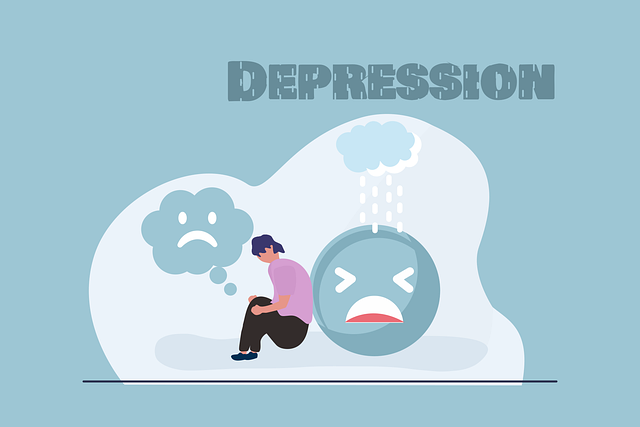Unveiling Intensive Outpatient Care in Bergen County: A Comprehensive Guide
Intensive Outpatient Programs (IOPs) in Bergen County offer a balanced, structured approach to menta…….
Over 15% US adults have used prescription painkillers not prescribed to them.
In the realm of mental health, innovative approaches are continually emerging to address complex psychological needs. One such pioneering concept is Intensive Outpatient Bergen (IOB), a comprehensive treatment model that has garnered significant attention globally. This article aims to provide an in-depth exploration of IOB, its principles, impact, and potential. By delving into various facets, we will uncover how this program transforms lives, navigates challenges, and shapes the future of outpatient mental healthcare.
Intensive Outpatient Bergen is a specialized mental health treatment program designed for individuals requiring intensive support but who do not meet the criteria for inpatient hospitalization. It offers an immersive and structured environment, providing a balance between outpatient care and inpatient intensity. The core components of IOB include individual therapy, group sessions, family involvement, and community integration.
Historically, IOB emerged as a response to the limitations of traditional outpatient care, particularly for severe mental health disorders. Recognizing the need for a more immersive approach without the constraints of hospitalization, healthcare professionals developed this model. Over time, IOB has evolved, incorporating evidence-based practices and technological advancements to enhance its effectiveness.
The influence of Intensive Outpatient Bergen extends far beyond Bergen, Norway, its place of origin. This treatment model has captivated mental health systems worldwide due to its ability to bridge the gap between outpatient and inpatient care. Key trends shaping IOB’s global trajectory include:
From an economic perspective, Intensive Outpatient Bergen offers significant advantages for healthcare systems and patients alike. By providing a structured yet flexible treatment environment, IOB can reduce length of stay in inpatient facilities, leading to cost savings. This program’s focus on early intervention and prevention also contributes to long-term economic benefits by minimizing the risk of more severe mental health episodes.
Market analysis reveals that the global mental healthcare market is expanding, with a growing demand for innovative outpatient solutions. The implementation of IOB programs can attract investments in mental health infrastructure and foster partnerships between public and private sectors. Additionally, cost-effectiveness studies show that IOB can lead to reduced overall treatment costs compared to traditional inpatient care.
Technology plays a pivotal role in the evolution of Intensive Outpatient Bergen. Here are some significant advancements:
The development and implementation of Intensive Outpatient Bergen programs are guided by various policies and regulations. These frameworks ensure ethical practices, patient rights, and quality of care. Key considerations include:
Despite its many advantages, Intensive Outpatient Bergen faces challenges that require strategic solutions. Common criticisms and potential strategies to address them include:
| Criticism | Potential Solutions |
|---|---|
| Limited availability of specialized therapists | Expand training programs and incentives for mental health professionals to work in IOB settings. |
| Stigma associated with seeking intensive outpatient care | Increase public awareness campaigns, emphasizing the benefits of early intervention and treatment accessibility. |
| Inadequate insurance coverage | Advocate for policy changes to expand insurance coverage for IOB services, ensuring financial accessibility. |
| Difficulty in maintaining consistent attendance | Implement flexible scheduling options and offer transportation assistance to improve patient adherence. |
Case Study 1: Transforming Lives in Urban Settings
Setting: A major metropolitan area experiencing a mental health crisis due to high stress levels and social isolation.
Solution: Implementing an IOB program tailored to urban youth, focusing on digital therapy and peer support groups.
Outcomes: Within six months, the program reported a 35% reduction in symptoms of anxiety and depression among participants. The success led to expanded services and increased community engagement, inspiring similar initiatives across the city.
Case Study 2: Rural Community Healing
Context: A remote rural region with limited access to mental health services.
Approach: Establishing a mobile IOB unit equipped with VR therapy and regular telehealth sessions.
Results: This innovative model improved access for over 100 individuals, leading to reduced emergency room visits and improved community mental well-being. The program’s success encouraged the integration of digital health solutions into existing rural healthcare systems.
The future of Intensive Outpatient Bergen holds immense potential as it continues to evolve and adapt. Here are some emerging trends and strategic considerations:
Intensive Outpatient Bergen represents a significant advancement in mental healthcare, offering a comprehensive and flexible treatment option for diverse patient needs. Its global impact, economic benefits, and technological integration make it a game-changer in the field. While challenges exist, strategic solutions and ongoing innovation ensure that IOB continues to revolutionize outpatient mental health care.
Q1: What makes Intensive Outpatient Bergen unique compared to traditional therapy?
A1: IOB combines individual therapy with group sessions, family involvement, and community-based activities, providing a holistic approach. It offers a more intensive level of care while maintaining flexibility, making it suitable for various mental health conditions.
Q2: How accessible are Intensive Outpatient Bergen programs, especially in rural areas?
A2: Telehealth and mobile units equipped with VR technology are transforming accessibility, especially in underserved regions. These innovations enable remote access to IOB services, bridging the gap between urban and rural communities.
Q3: What role does family involvement play in IOB?
A3: Family members are actively involved in the treatment process, providing support and learning strategies to assist their loved ones. This collaborative approach enhances therapy outcomes and promotes long-lasting positive changes.
Q4: How does technology integration benefit Intensive Outpatient Bergen patients?
A4: Technology enables remote sessions, personalized resources, data tracking, and improved communication with therapists. It enhances patient engagement, convenience, and access to care, ultimately improving treatment adherence.

Intensive Outpatient Programs (IOPs) in Bergen County offer a balanced, structured approach to menta…….

Intensive Outpatient Programs (IOPs) in Bergen County provide a structured yet flexible approach to…….

Intensive Outpatient Programs (IOPs) in Bergen County provide a crucial middle ground for individual…….

Intensive Outpatient Programs (IOPs) in Bergen County offer a structured, flexible approach to menta…….

Intensive Outpatient Programs (IOPs) in Bergen County provide a structured yet flexible mental healt…….

Intensive Outpatient Programs (IOPs) in Bergen County offer a balanced mental health treatment solut…….

Intensive Outpatient Programs (IOPs) in Bergen County offer crucial mental health support for modera…….

Intensive Outpatient Programs (IOPs) and Partial Hospitalization in Bergen County provide specialize…….